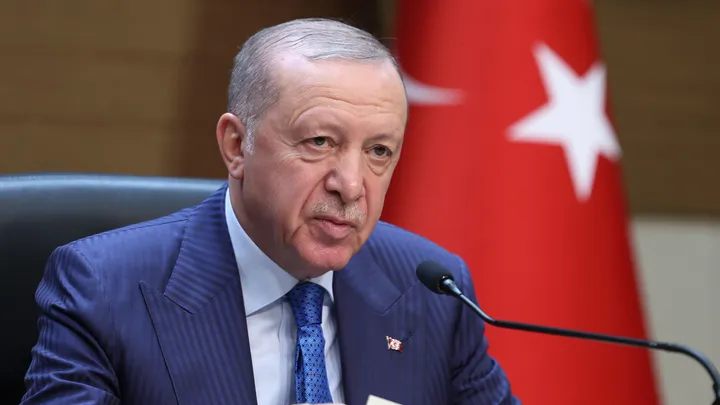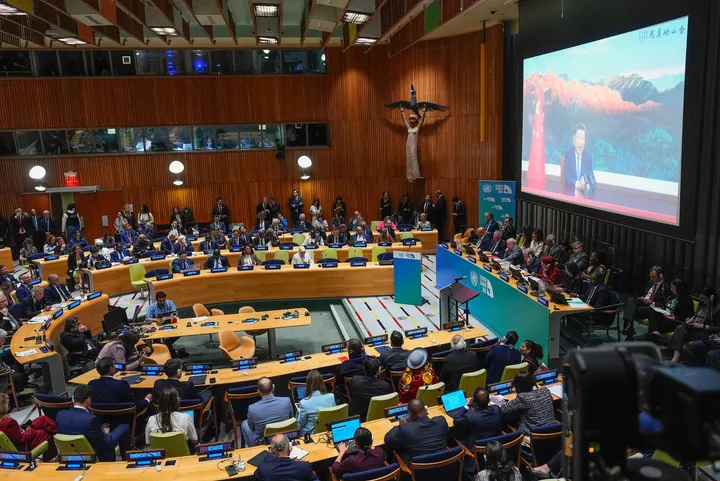By Endashaw Aderie
As world leaders dey prepare for di Africa Climate Summit and di United Nations Climate Change Conference (COP30) wey go happen dis November, di talk wey go full ground go dey about big-big negotiations and strong promises. But for di people wey dey live for Eastern Africa, di wahala of climate change no be sometin wey go happen for future; na sometin wey dey happen now-now, and e don turn health emergency wey dey show for di way forgotten sicknesses dey increase for di area.
Everyday, for di places wey climate wahala and fight don scatter pass for Africa, we dey see one silent but serious reality: climate change no just dey cause emergency, e dey also make deadly sicknesses wey dem dey call neglected tropical diseases (NTDs) spread fast-fast. Dis sicknesses don dey disturb di poorest people for di world for long, but now, di way heat dey increase, rain no dey fall well, and di kind bad weather wey dey happen, don dey change di way dem dey spread and di kain damage dem dey cause.
Dis problem wey dey join climate and health wahala dey happen at di same time wey money wey dem dey use help people don reduce well-well. Dis one go make di health problem for di area worse pass as e be before.
Médecins Sans Frontières (MSF) or Doctors Without Borders, dem dey see how di matter dey happen live and direct. Di way di climate dey change and di weak health system dey join hand dey cause one deadly cycle of sickness and neglect. For northern Kenya, di dry land and di way rain no dey fall well don make people wey dey rear animals dey waka far to find water and grass. As dem dey waka, dem dey meet sandflies wey dey carry one sickness wey dem dey call kala azar. For South Sudan, di flood wey dey happen for di wetlands don make di freshwater snails wey dey carry schistosomiasis full everywhere.
For late 2024, kala azar cases increase well-well for Marsabit and Wajir counties for Kenya. By May 2025, dem don record 347 cases and five deaths for Marsabit, and 994 cases with 40 deaths for Wajir. Most of di people wey di sickness affect na pikin dem wey never reach five years. Kala azar na parasitic sickness wey sandflies dey carry, and e dey thrive for hot, dry places wey climate change dey make worse. If dem no treat am, e dey kill more than 95% of di people wey get am.
Di sickness dey hard to detect, many people no sabi am well, and di treatment dey delay because test kits and medicine no dey enough. Even when MSF dey try treat people and train health workers, di main problem like di way di environment dey change, no good control for di sandflies, and di weak health system still dey make di sickness spread.
For South Sudan, for one remote town wey dem dey call Old Fangak for Jonglei state, schistosomiasis dey worry people well-well. Di place dey flood anyhow, and di freshwater snails wey dey carry di sickness don full di rivers and lakes. MSF do survey for 2022 and dem see say 84% of di school children for di area get di parasite egg for dia body.
Even though di sickness dey plenty, dem never fit do mass drug administration for di area because di place dey hard to reach. MSF believe say many women and girls for di area dey suffer from one serious type of di sickness wey dem dey call female genital schistosomiasis. MSF dey help treat people for Old Fangak hospital until May dis year when helicopter bomb di hospital, destroy di pharmacy and di medicine wey dem dey use treat people.
Di situation for Jonglei na small example of wetin dey happen for Eastern Africa. Climate change dey create better condition for neglected diseases to spread, but fight and di way di world no dey pay attention dey make di matter worse. Di people wey dey suffer pass na di pastoralists, women, and children. Yet, di sicknesses no dey for di climate policy agenda and dem no dey even talk about dem for climate-health plans or climate adaptation funding.
Climate wahala like flood, drought, or heatwave no dey happen alone. Dem dey cause other problems like crop failure, water wahala, malnutrition, and di increase of sicknesses wey dey attack weak body. MSF dey see kala azar and schistosomiasis join cholera, malaria, and acute malnutrition. Dem dey send mobile medical teams go remote villages, dey add water, sanitation, and hygiene measures for dia medical response, and dey train local health workers to detect and treat di sicknesses early. But all dis effort no go reach unless di system change.
Neglected tropical diseases dey very sensitive to climate and dem no dey get enough money to fight dem. If dem no include dem for climate strategies, e go mean say di people wey dey suffer go continue to dey suffer, and di cost go include loss of life, poverty, and more wahala. If we no act now, di sickness go spread go new areas and e go even affect global health security. Di need to build health systems wey fit handle climate wahala dey urgent.
MSF don dey add climate risk for dia planning. Dis mean say dem dey keep medical supplies ready before flood go cut off communities, dey track environmental signs wey fit show say outbreak dey come, and dey push make dem recognize NTDs as sign of climate impact. Treating people wey dey sick now dey important, but if we no address di main problem wey dey cause di outbreak, di future go worse pass wetin we dey see now.
Di Africa Climate Summit and COP30 na chance to change di way we dey do things. Leaders, negotiators, and donors suppose understand say climate change no be only environmental issue; e don turn public health emergency, and NTDs na one of di biggest signs of di problem.
Di solution dey clear, but e go need make we change di way we dey see di matter. We suppose stop to dey call dem "diseases of poverty" and see dem as di result of di climate-health crisis wey dey grow.
1. Inclusion of NTDs for climate adaptation strategies — National adaptation plans suppose include climate-sensitive diseases, with money wey dem go use monitor, prevent, and treat dem.
2. Investment in resilient health systems — Health facilities for areas wey climate dey affect suppose get di capacity, staff, and resources to handle di many problems wey dey happen together.
3. Cross-sector collaboration — Health, water, sanitation, and climate policies suppose dey work together. Medicine alone no fit stop NTDs; we need clean water, better housing, and strong health infrastructure.
Climate change dey change di way sicknesses dey spread. Di stories from Marsabit, Wajir, and Old Fangak na warning of wetin go happen if we no act. For di most vulnerable people for Eastern Africa, NTDs na sign of how ready we dey for di crises wey dey come. By joining climate and public health action, and focusing on di sicknesses wey dey sensitive to environmental change, we fit protect more communities. Di time to act na now, before di silent crises turn to big disaster. If we no act, di outbreaks go increase, people go suffer more, and di humanitarian burden go heavy pass wetin we fit carry.
Di author Endashaw Aderie, na Senior Health Advisor for Médecins Sans Frontières / Doctors Without Borders (MSF).
Disclaimer: Di views wey di author talk no mean say na di same opinion TRT Afrika get.




























